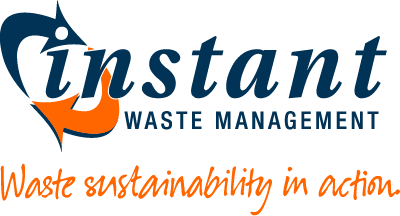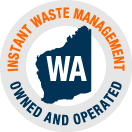Plastic-Free July – How to Get On Board
30 July 2018
With Australia’s waste volumes increasing at double the rate of our population and the implementation of China’s National Sword Policy in January this year, it is more crucial than ever that we take considerable measures to reduce landfill and cut global warming emissions.
From rising sea levels and increased flooding, to severe droughts, famine, disease and loss of wildlife, the environmental impact of global warming is devastating – and will exacerbate, unless we take action now.
Fortunately, as a nation we are adopting a more environmentally-conscious mentality, thanks to the persistent media coverage on global warming and the importance of recycling. ABC’s highly-publicised documentary series ‘War on Waste,’ has played a pivotal role in educating the public on the perils of waste to landfill, and is back on-air this month.
The effort to combat global warming begins at home. We can all do our bit to help the cause. And being ‘Plastic-Free July,’ what better time to kick-start our efforts! Established in 2011, Plastic-Free July is a non-for-profit foundation which has grown from a just a few participants in WA to millions across the globe today.
So, jump on board today and help to create a cleaner world for future generations. Here are some steps you can take to reduce your plastic waste.
1. Ditch the disposable coffee cups
Australia’s caffeine addiction is responsible for 1 billion disposable coffee cups each year. And because these cups are non-biodegradable, they congest landfill and become an environmental hazard.
So, ditch your daily disposable and opt for a re-usable mug or thermos instead.
2. Re-use your shopping bags
In 2017, Australians consumed nearly 4 billion plastic bags, which equates to roughly 170 plastic bags per person, per year! With only 3% of them currently being recycled, that means 120,000,000 are dumped in landfill each year. Each plastic bag takes between 10 and 1000 years to decompose, so it is crucial that we reduce our usage of these.
Rather than loading your purchases into new plastic bags each time you shop, re-use your existing plastic bags. Better still, use eco-friendly bags made of cotton, calico, canvas or hemp. Not only are they kind to the environment, but a well-made bag will last years, so will also be kind to your wallet.
And keep your bags in the car – this way you’ll avoid forgetting them and resorting to the plastic variety!
Also, avoid using the plastic fruit and vegetable pouches available is supermarkets. You don’t need pouches for larger items, such as carrots, potatoes, cabbages, bananas and melons. And for smaller items, such as berries and loose salad leaves, bring re-usable bags from home.
3. Re-think bin liners
Re-think your bin behaviours. Do you really need to use a bin liner? There are a number of steps you can take to eliminate the need for bin liners, such as separating your waste right away, recycling as much as possible and starting a compost.
If you feel this is a step too far for you, you can instead opt for a re-usable, non-plastic liner.
4. Swap plastic cups for a water bottle
Rather than filling a plastic cup every time you want a drink of water at work, make the simple switch to a re-usable water bottle. It really is that simple!
5. Store leftovers in re-usable containers
Store your leftovers in a re-usable container, as opposed to a disposable one. Over time, this simple change will also save you money. And bring these leftovers into work for your lunch. This will save you from having to fork out for a meal and will also avoid the inevitable plastic packaging that encases sandwiches and other take-away food.
6. Take your own containers to the deli, butcher and take-away restaurants
Keep a re-usable container in the car for any spontaneous trips to the deli, butcher or a take-away restaurant.
7. Say ‘No’ to straws
Avoid using straws; we can all sip a drink quite comfortably without the need for a straw!
8. Use cloth nappies
If you have a baby, take a leaf out of your Grandmother’s book and swap disposable nappies for cloth ones. A child will use a whopping 3,000 to 6,000 nappies in its’ lifetime, which equates to an average total spend of over $3,000 per child. So, save your pennies and go green.
9. Recycle, repurpose and reuse
This is your chance to get creative! Recycle, repurpose and reuse as much as possible! There are lots of great online resources which provide a range of interesting and innovative ideas for repurposing and upcycling.
By following these steps, we can all play a part in reducing our carbon-footprint and protecting the environment.
At Instant Waste Management, we are strongly committed to recycling. As an environmentally-conscious rubbish removal company, we turn a profit by recycling waste material which would otherwise go to landfill.
For more information on Plastic-Free July, or to learn more about Instant Waste Management’s waste recycling efforts, contact us today.









